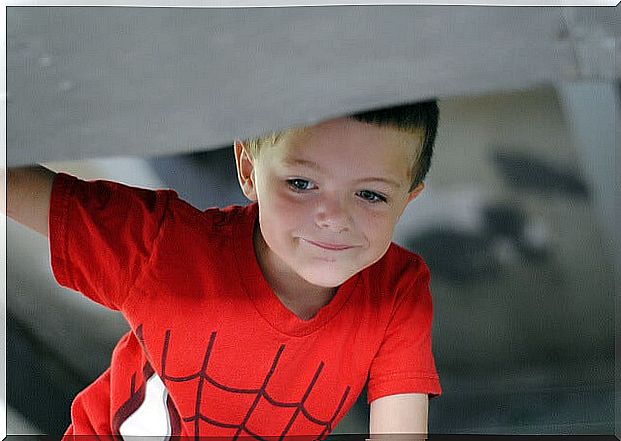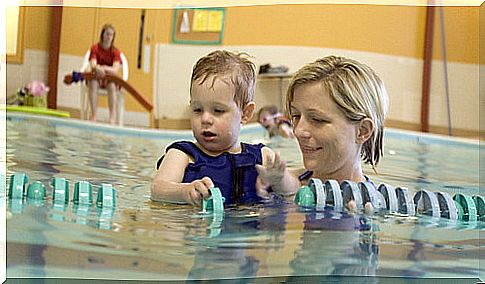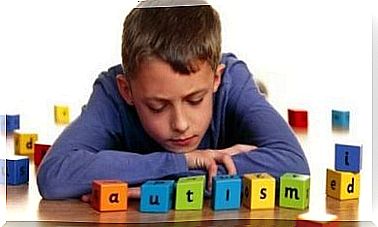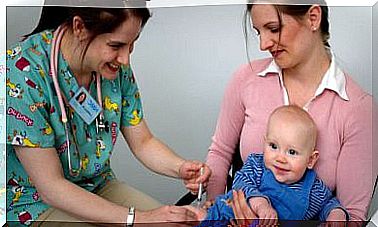“Your Son Is Autistic.” And Now That?

You know what happens to your son, you received the diagnosis, they told you: Your son is autistic. And now you wonder what to do. My answer is prepare, inform yourself and strengthen your spirit.
When a family receives the news that their child has some type of childhood autism, it is natural for the world to come down on us. Some specialists define this stage as a grieving process, you may experience contradictory feelings, which is normal.
After a diagnosis of Autism Disorder, the family is in a very painful process that experts compare with the process of mourning, in this case mourning for the loss of a “normal child”.
The stages of grief go through: shock and initial denial, anger and resentment, depression and acceptance, explains the Clinical Practice Guide for the Management of Patients with Autism Spectrum Disorders in Primary Care.
The most advisable thing is that you seek psychological help to put together a strategy that allows you to help your child and manage your emotions correctly.

A team to treat autism
Autism is a complex brain-based disorder that affects multiple areas of development, including social interaction, verbal and non-verbal communication, imagination, behavior, and interests.
Its symptoms emerge at an early age, usually before 3 years of age.
Specialized guides on the subject advise that you develop your own personal team of allies to support you. I think you can look for alternatives within the public health system that offers specialized care in different areas.
Give yourself time and be patient, think that parenting is often a challenge, and when we are faced with a developmental disability, this task becomes even more complicated.
One of the tips in A Brief Guide for Parents to Autism, a document written by specialists from Tennessee, in the United States, recommends that you build a group of people you can trust and count on.
You will be better able to meet and meet your child’s needs if you take care of yourself. Locate parent support groups. Spend time enjoying yourself with your other children or family members.
Find auxiliary care or family respite services to give you some rest. And ask for assistance from your faith community.
If you are so sad or overwhelmed that you feel hopeless or paralyzed, seek the help of a counselor or therapist. Talking to other parents who have children with autism is helpful.

A good evaluation is more than useful
A good medical report is the starting point for your child’s treatment; This should explain the capabilities and needs of the child.
A good medical evaluation includes observing your son or daughter and applying some specific tests. There are different ways to do it, however there are key points that must be considered essential.
- The evolutionary and clinical history to be able to know the background of the child and the family. This should be as detailed as possible.
- The evaluation of communication and language skills.
- Detailed assessment of your social behavior and how you relate to other people.
- The evaluation of the abilities to play with objects and other people.
Treatment is necessary
These types of children need treatment because they have difficulties in naturally developing skills related to communication, language, games, imagination, self-control and relationships with other people, so they need to be taught these skills .
A good treatment will allow your child to learn the necessary skills to be able to participate actively in the family and in society, which is why it is so necessary that they receive it.
The goal of treatment is to build on your child’s strengths, so that he can develop the skills he doesn’t have. It also includes, when required, reducing or eliminating behaviors that harm or interfere with their learning.
Also, therapies should target areas that demand a lot of effort from your child. With autism spectrum disorders, this often means helping your child develop practical communication skills, increase social interest and interactions with children and adults, develop play and imagination skills, decrease behavior problems, and foster learning. general and thinking skills.
Since transitions are often difficult for children with autism spectrum disorders, treatment may also include strategies to help your child manage his daily activities schedule without much trouble.
Even though children with autism spectrum disorders share certain characteristics, your child has unique strengths and needs.
Therefore, no intervention plan should be identical to another. Treatment must be “individualized” and designed specifically for your child.









